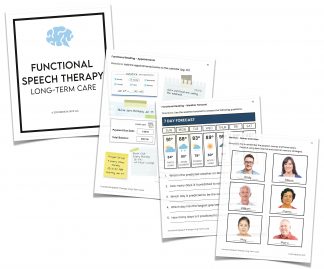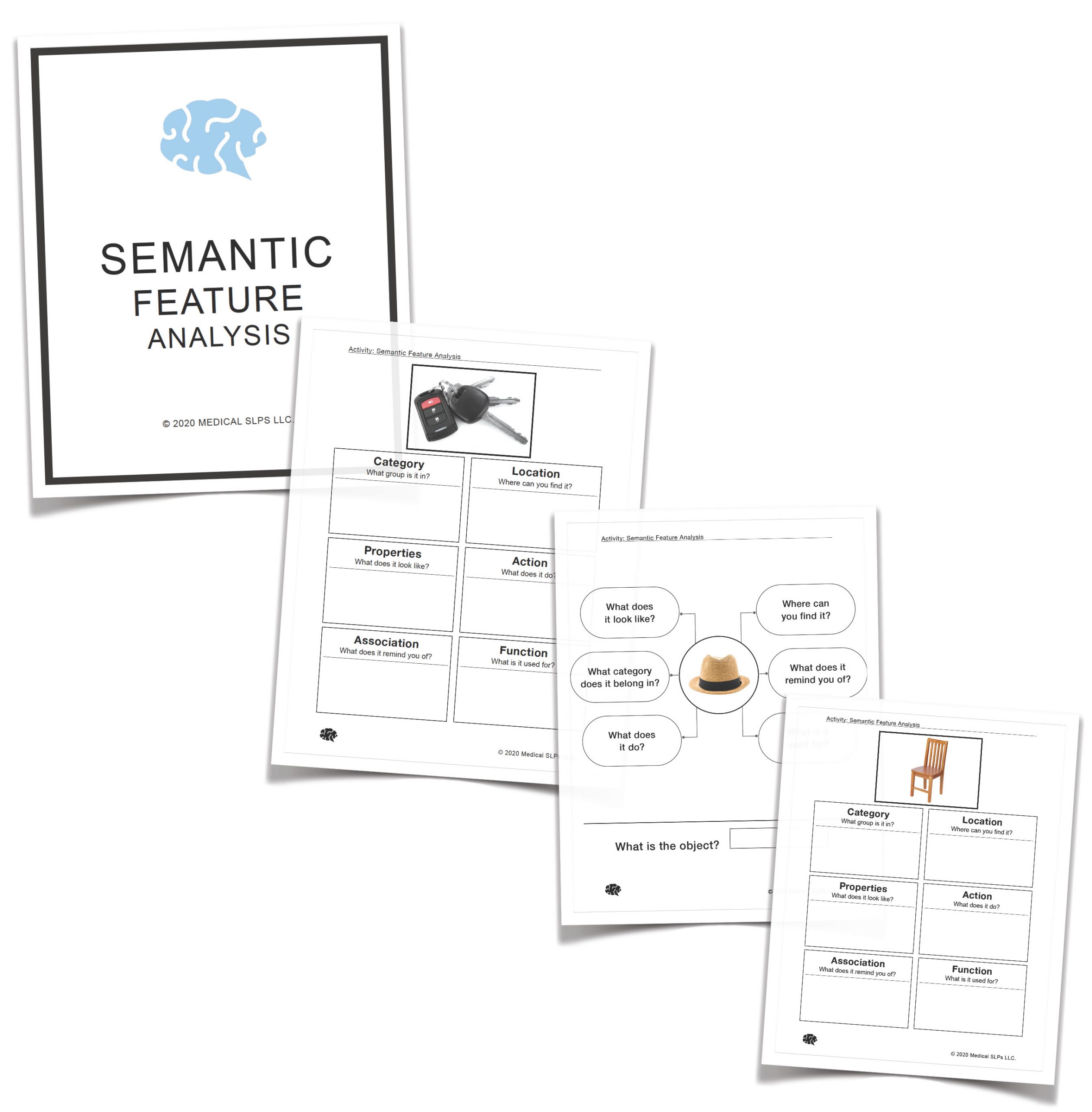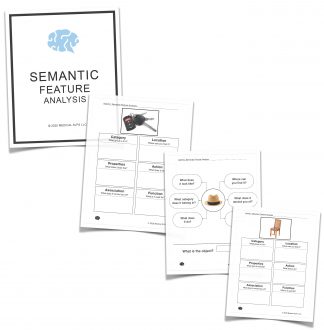Description
Free printable PDF semantic feature analysis (SFA) charts/grids. Includes blank charts for customization.
$0.00
27 pages. Use this free PDF download to target word retrieval using evidenced-based practice.
Free printable PDF semantic feature analysis (SFA) charts/grids. Includes blank charts for customization.
You must be logged in to post a review.


The Functional Reading Life Skills Bundle includes realistic reading activities followed by comprehension questions and answers. This resource features over 390 pages of activities that can be used to practice real-life reading opportunities from restaurant and food menus to utility bills and receipts. Composed of practical reading stimuli, this bundle can be used to target a variety of cognitive communication goals and essential reading skills necessary for our daily lives. The functional assessment and client intake forms can be used to gather individualized client information and determine daily reading demands.
Sections:

The Functional Speech Therapy for Long-Term Care Bundle includes materials and resources for new and experienced clinicians working in long-term care settings (i.e., Skilled Nursing, Assisted Living SNF/ALF/LTC, etc.). Filled with educational handouts, screening tools, and practical no-prep treatment activities.
245 Pages
Forms
Functional Reading
Memory/Orientation
Problem Solving/Reasoning/Safety Awareness
Word Retrieval
Necessary cookies are absolutely essential for the website to function properly. This category only includes cookies that ensures basic functionalities and security features of the website. These cookies do not store any personal information.
Any cookies that may not be particularly necessary for the website to function and is used specifically to collect user personal data via analytics, ads, other embedded contents are termed as non-necessary cookies. It is mandatory to procure user consent prior to running these cookies on your website.



Reviews
There are no reviews yet.